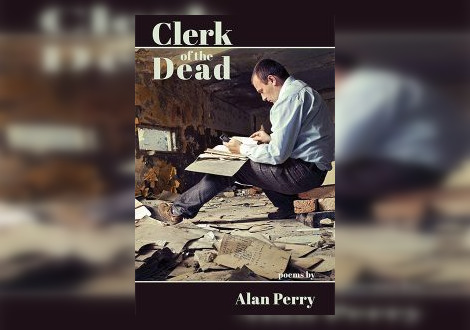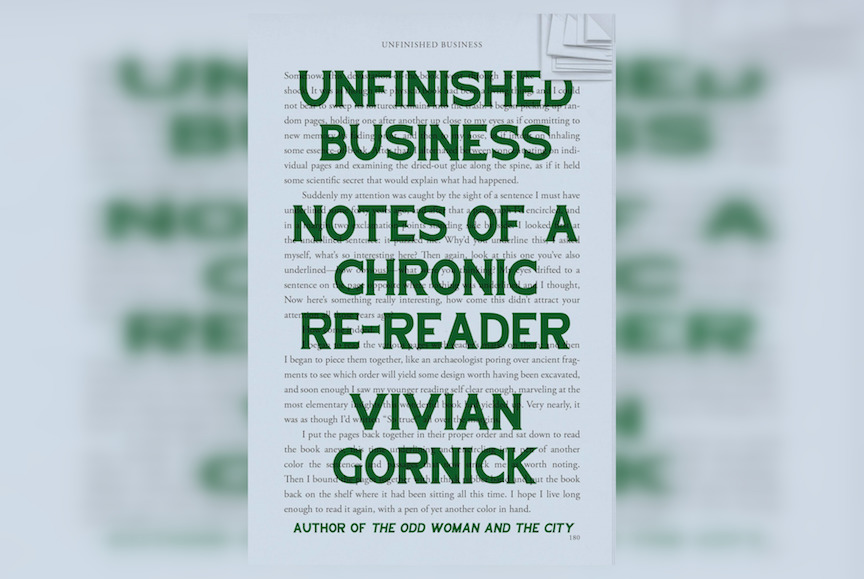To read Clerk of the Dead as a collection about death is to see these poems through a single lens that doesn’t take into account the many facets glimmering in the text. Death is merely a specter haunting the lines, much as Death’s specter haunts us, especially as COVID-19 continues to ravage the nation. Alan Perry’s poems do not only reckon with death or dying; they reckon with what it means to lose something.
This debut collection from Alan Perry is divided into two unnamed sections. Of the 27 poems contained in these pages, a quarter of them are written in honor of others, ranging from poet Mary Oliver to the victims of the Orlando Pulse Shooting. It’s in this way that Perry weaves the presence of death throughout the collection, exploring both personal loss in poems where the speaker reflects on their mother, and poems that embody what it is to mourn a death that takes place in culture more than in your own life. Amid these more obvious writings on dying and grief are poems dedicated to loss as loneliness, loss as becoming the only one left of your high school classmates, and loss as no more family dinners. Fittingly, the collection ends with “Elegy,” a poem that seeks to honor both the dead in the speaker’s own life and the dead haunting the poems of the collection.
The opening poems of this collection introduce us to Perry’s ability to create gut-punch endings, but it is in “Witness” that this technique truly shines. In this three-part poem written for the Destrehan-Luling Louisiana Ferry Crash in October of 1976, Perry creates the feeling of a typical early morning day, only to use the last stanza of the first part to dash that simple morning:
nobody breathed as a tanker
folded the wooden ferry
like a deck chair in a discarded pile.
Simile is a useful tool for all poets, and with this last line Perry has crystalized an image for the reader that manages to convey how something as massive as a ferry can be reduced to something fragile, something waiting to be thrown away. The second part of this poem takes the reader inside the minds of the witnesses of this event, from those still on land to those who “tried to swim to shore. . .” While the loss of life appears at the forefront of this poem, other losses are present as well—the loss of a feeling of safety, the loss of the dream of being invincible, the loss contained in sudden stillness.
The first section of this collection ends with the title poem, “Clerk of the Dead.” Despite its name, this poem feels much more removed from death than the preceding poems. This poem deals not with personal death or tragic death, but the mundane death. Here, death is simply an occasion that leads to action for the speaker as part of their job, a job dependent on death yet encountering none of the mess or emotion that death tends to entail. This poem serves to transition the reader from the first half of the book, which looks at death head-on and filters loss through that light, to the second half, which moves its focus away from death in the concrete to death in the abstract.
Of the many people and events Perry has chosen to highlight in this collection, I was most surprised to encounter “Closure,” a poem written for Kate Spade, a fashion designer who committed suicide in 2018. Of all the poems contained in this collection, I found myself most drawn to this one because of the way it relays the universality of the human experience. The first stanza begins with the speaker outlining why they are different from Spade, how they would never “name (their) own leather to drape / on someone else’s shoulder.” The second stanza, though, recognizes that connection between Spade and the speaker, something the poem describes as “the allure of rest.” The stanza examines with what it means to carry the kind of nameless grief that accompanies depression, ending with an image of death that manages to capture the feeling in language that is befitting of a famous handbag designer:
like the snap of a purse
that can’t be opened
from the inside.
The final poem of the collection, “Elegy,” does an interesting trick of dedicating five stanzas to a metaphor that is then quickly subverted. The poem compares the idea of remembrance, accompanied by mourning, to snow. This snow “leaves a vanishing mark” and provides “a simple blessing,” before the poem introduces a turn in the sixth stanza: “But this poem doesn’t adore snow.” The lines go on to speak of the people who are to be found in the lines of this collection, only to come back to see these people as snowflakes which come down to earth “and become it.”
The poems Perry presents in Clerk of the Dead contain striking imagery that allows the reader to enter into a mindset in which loss becomes synonymous with what it means to live, in how metaphor and simile can be used to cast reality in perfect clarity. These are poems that attempt to grapple with the multiplicity of loss in our society, from the magnitude of what happened on November 22nd, 1963, to the strikingly simple act of looking at a photograph. To read this collection is to find lines that are strikingly personal while speaking to the larger truths of human existence in a world where nothing is permanent. In this work, Perry has established himself as a poet with striking insight and an impressive ability to render life’s complexity into a handful of words.




